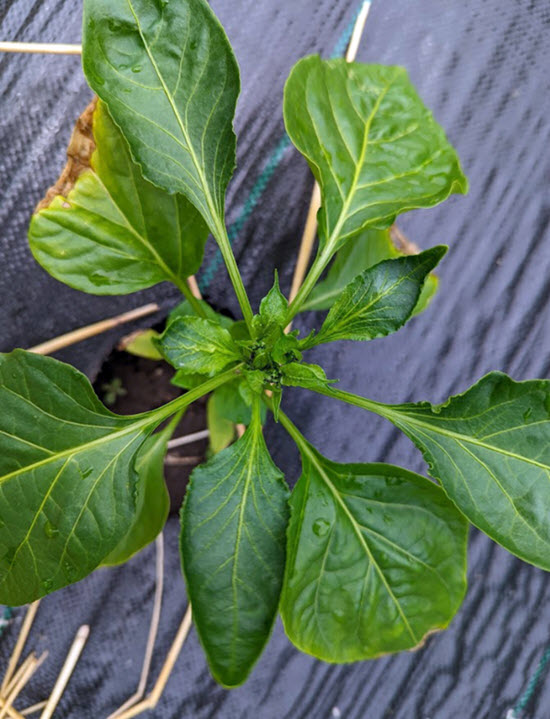Click below to listen to my 2 min. Garden Bite radio show/podcast: Herbicide drift
Herbicide drift, it’s not a dance move but that would sure be more fun!

Herbicide drift could be coming from you or from your neighbors who are trying to kill broadleaf weeds. Either way it can affect your fruits, vegetables and other plants. University of Minnesota Extension Educator, Annie Klodd, says she sees symptoms of herbicide damage on her peppers, grapevines and tomatoes nearly every year in late June.
The leaves grow in strange shapes, curl inward, and are smaller than normal.

She does not use herbicides in her lawn but her garden still has damage every year due to the neighbor. The mentioned plants are the most affected by 2,4-d, dicamba, and other growth regulator herbicides.

The damage usually takes a couple of weeks to appear so you might not realize what’s going on. As long as your plants were not directly hit by the herbicide, they have a chance of outgrowing it but their growth will take longer. Once hit by herbicide drift there’s nothing you can do but wait it out. Just make sure they continue to have enough water so they’re not further stressed.
To prevent the drift yourself, avoid spraying your lawn for broadleaf weeds but if you DO, definitely avoid spraying during very hot and/or windy weather.
Preventing your neighbor’s drift will be more difficult but you can start with having a conversation with them. If that fails, you can report them. This link is to the Minnesota DNR. Check with your own local Dept. of Natural Resources.
These types of herbicides can vaporize in hours or days after application, and move through the air. This is called volatilization and it’s worse in hot/dry/windy weather.
Here is a link to MORE information on Herbicide Drift through the University of Minnesota Extension including photos of what the damage looks like on several types of plants and whether it’s glyphosate or 2,4 D and Dicamba.

